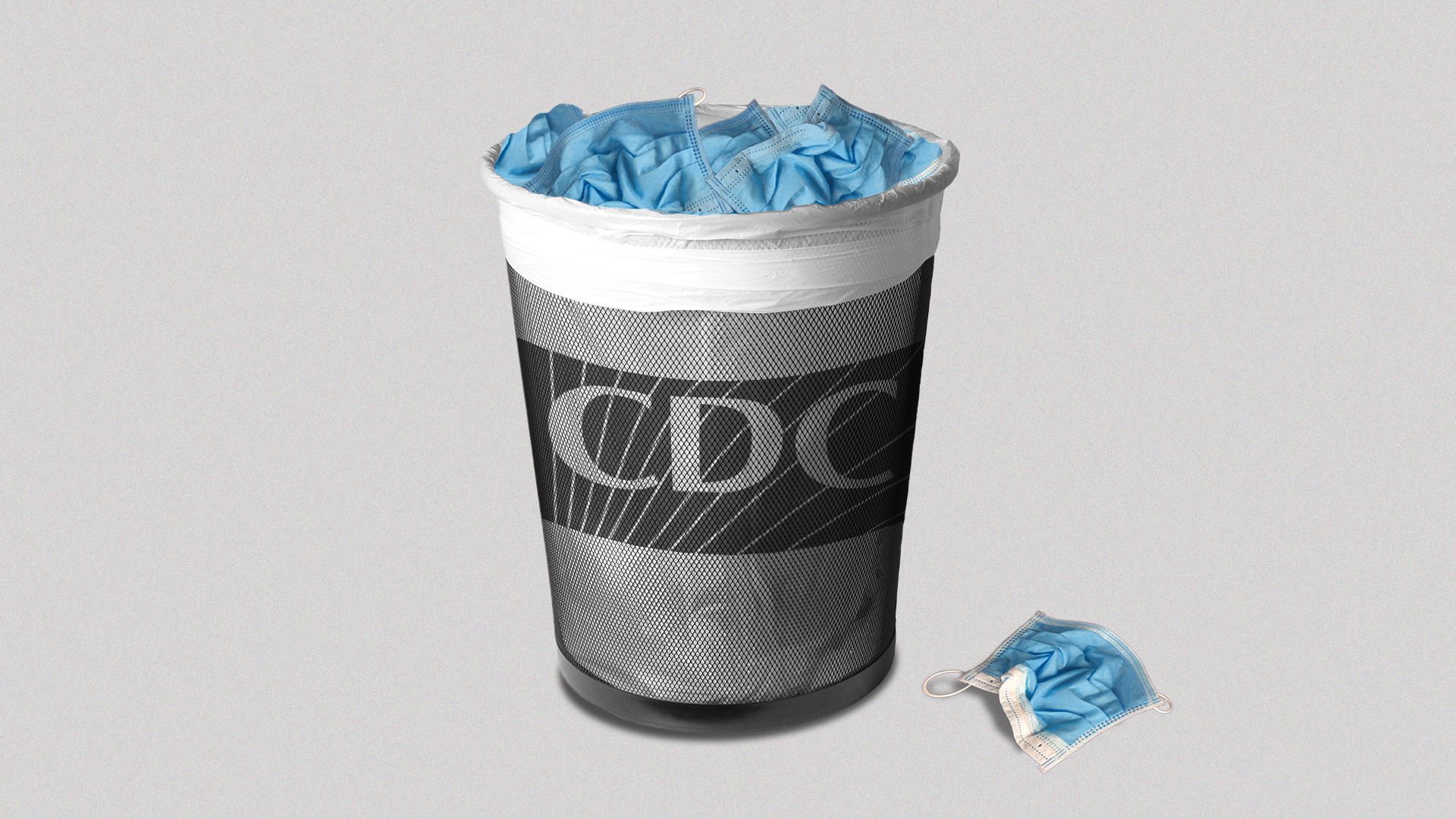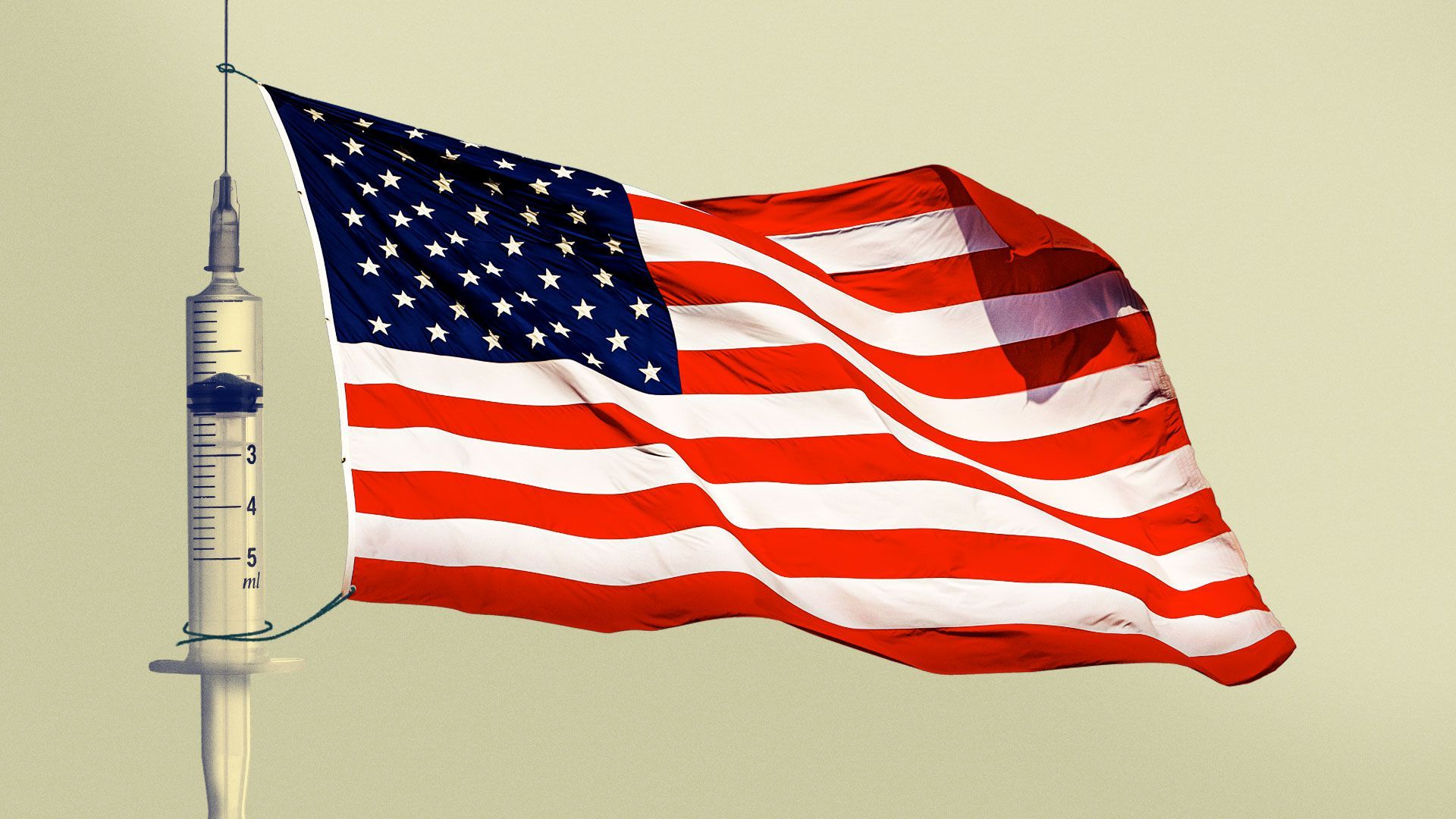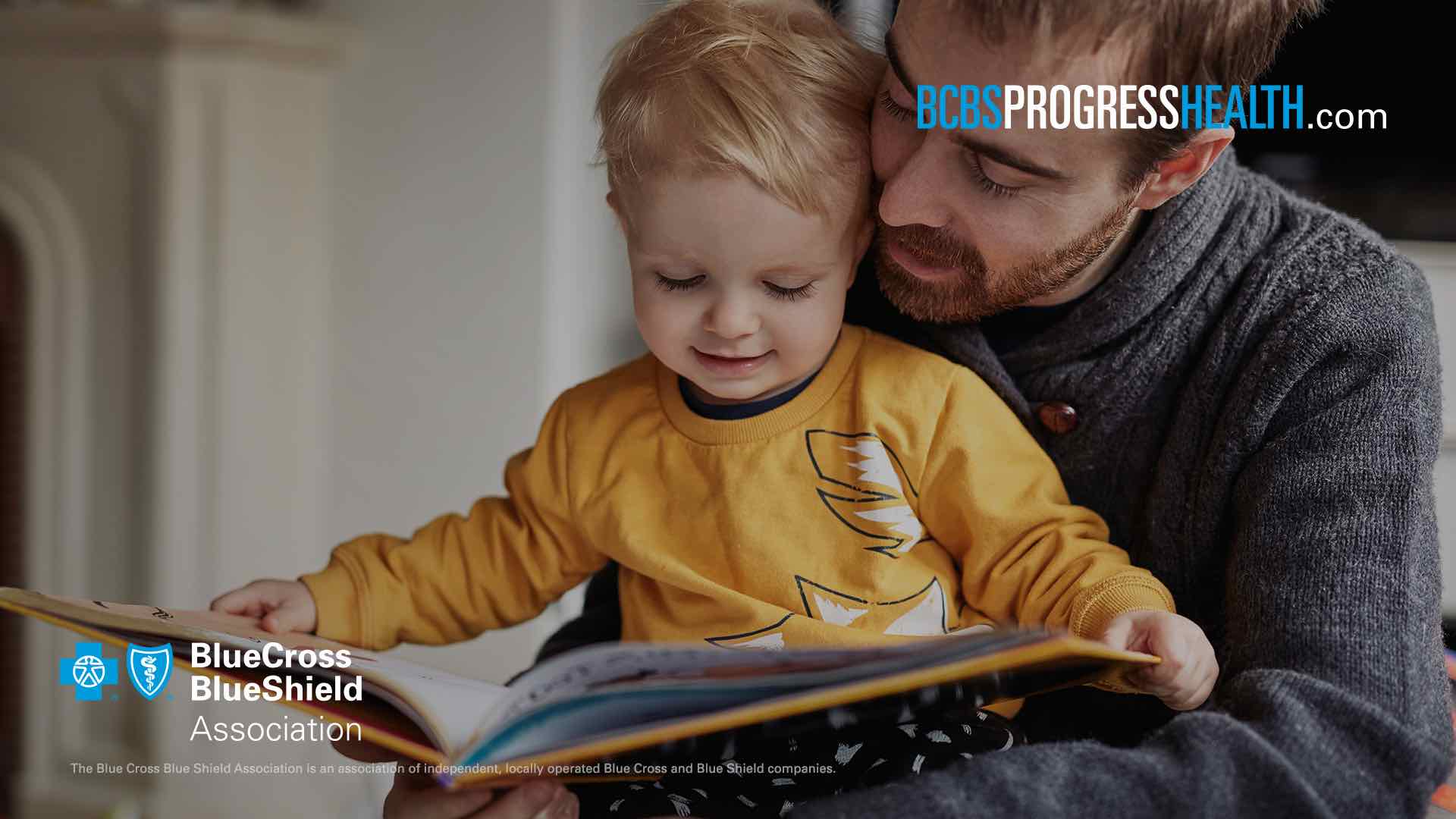| |
| |
| |
| Presented By Blue Cross Blue Shield Association |
| |
| Vitals |
| By Tina Reed ·May 18, 2021 |
| Good morning. Situational awareness: While the future of COVID-19 vaccine mandates at large is still unclear, two major health care conferences — HLTH and HIMSS — made their stances clear Monday. Both announced those who plan to attend in person this fall better remember to pack their proof of vaccination. Today's word count: 925, or a 3-minute read. |
| |
| |
| 1 big thing: Another senior CDC departure |
 |
|
| Shoshana Gordon/Axios |
| |
| As some public health experts continue to criticize the rollout of the CDC's new mask guidance, a top CDC official announced her retirement yesterday — the second in a month. Why it matters: Although the agency has taken a decidedly more pro-science approach to the pandemic under the Biden administration than it did under Trump, the trio of negative headlines suggests lingering turmoil, Axios' Caitlin Owens writes. Driving the news: Anne Schuchat, the CDC's principal deputy director, will retire this summer, Politico first reported yesterday. - Another top official, senior scientist Nancy Messonnier — who came under fire by the Trump administration for her early COVID warnings — said earlier this month she's also leaving the agency.
- The dust has yet to settle from the CDC's surprise announcement saying vaccinated people no longer need to wear masks in most indoor settings.
Between the lines: Critics of the CDC announcement say it was too much, too soon. - "What they ended up saying sounded not like guidance for vaccinated people. It was interpreted by decision-makers ... as the impetus to drop all mask mandates without asking for any kind of proof of vaccination," said Leana Wen, a visiting professor at George Washington University.
- "The CDC sounds extremely naive when they say this was meant to be individual guidance," she added, pointing to the accelerated removal of mask mandates by states and businesses.
The intrigue: Politico reported Schuchat "clashed with CDC director Rochelle Walensky in recent months." But Schuchat told STAT's Helen Branswell she'd been thinking of retirement for some time and felt she couldn't leave in the thick of the pandemic. - "I feel so optimistic about CDC's future and the nation's public health system that this is the right time for me to move on," Schuchat said.
Share this story. |
    |
| |
| |
| 2. U.S. pressured to export more vaccines |
 |
|
| Illustration: Brendan Lynch/Axios |
| |
| President Biden's plan to share an additional 20 million COVID-19 vaccine doses overseas brings the U.S. total exports to 80 million. But experts and some policymakers say it's not enough, Axios' Marisa Fernandez writes. Driving the news: The world has reached a situation of "vaccine apartheid," World Health Organization director-general Tedros Adhanom Ghebreyesus said on Monday, saying "the big problem is a lack of sharing." The big picture: The low U.S. export numbers were at first defended as a strategy to ensure Americans are vaccinated first. But now the administration is being confronted by calls for a stronger involvement of vaccine diplomacy as domestic demand diminishes. - G7 countries and the EU could afford to donate more than 150 million vaccines without compromising their own goals, UNICEF said on Monday.
By the numbers: The U.S. has received more than four dozen requests for vaccine donations from countries across the world. China and Russia have exported larger shares of their vaccine production than the U.S. Go deeper: The U.S. came late to the vaccine diplomacy race, but could still win it |
    |
| |
| |
| 3. SCOTUS won't take patent case against Amgen |
 |
|
| Photo: Al Seib-Los Angeles Times/Getty Images |
| |
| The Supreme Court declined Monday to review a case challenging Amgen's patents tied to Enbrel, a blockbuster rheumatoid arthritis drug. The decision effectively blocks biosimilar competition until 2029. The big picture: It's the latest blow for biosimilars, a class of drugs that were supposed to spark competition and lower prices for some of the most expensive therapies. Flashback: The FDA first approved the first biosimilar to Enbrel — created by Novartis' subsidiary Sandoz — in 2016. The bottom line: With this final challenged exhausted, the company has eight more years of monopoly control over the drug, which has a net price of roughly $44,000 for a year of treatment. |
    |
| |
| |
| A message from Blue Cross Blue Shield Association |
| Expanding access to care |
| |
 |
| |
| 90% of Americans have health care coverage through their jobs, the individual marketplace, Medicare and Medicaid. We can build on what we have to achieve universal coverage, lower costs and make health care more equitable. See how Congress can help. |
| |
| |
| 4. The push to legalize psychedelics for mental health |
| Clinical research into treating mental illness with psychedelics has been happening for decades. But now, there's a group of companies exclusively focused on using LSD and other psychedelics to treat mental health disorders, Axios' Dan Primack writes. MindMed CEO J.R. Rahn, whose company recently listed on the Nasdaq, is among those driving the fight to legalize prescription psychedelics. "We're not using these so that you can have a better Burning Man experience. We're ultimately looking at this as 'How do we put this through the FDA pathway to help folks that are suffering from mental illness and addiction,'" Rahn said. - Rahn also said he saw the therapy as part of an ongoing care model. "One of the misunderstandings of psychedelics is that, 'Oh, you take it, it's a one and done and it's a panacea,'" Rahn said. "It's psychedelic-assisted therapy. Key emphasis on the 'assisted therapy' part," he said.
Listen now. |
    |
| |
| |
| 5. 1 good thing: States report zero COVID deaths |
 |
|
| Illustration: Eniola Odetunde/Axios |
| |
| Over the weekend, Texas reported reaching the milestone of zero deaths from COVID-19 for the first time since March 2020. - Arizona, Minnesota, and Massachusetts also recently reported COVID death-free days for the first time in months.
State of play: Other states also posted positive COVID metrics at the top of the week while COVID-19 deaths in the U.S. fell to their lowest in nearly 14 months, Reuters reported. - Maryland reported its lowest new daily COVID-19 cases since the end of March 2020, the Baltimore Sun reported. Virginia also posted its lowest rate of new cases since the beginning of the pandemic, the Virginian-Pilot wrote.
- Of course, expect this to spark more political debates about how individual states have handled mask mandates and reopening. As Newsweek pointed out, in March, Biden called Texas' leaders reopening plan "neanderthal thinking."
- And it's important to remember, plenty of states are still battling to get their case counts down. Alabama, Colorado and Michigan have the most cases per capita in the nation.
Big picture: There are still a lot of people who still need help abroad (see above) and it's far too soon to declare victory. But at least in the U.S., the evidence is growing that there are good reasons to be hopeful. |
    |
| |
| |
| A message from Blue Cross Blue Shield Association |
| Expanding access to close the low-income coverage gap |
| |
 |
| |
| Millions more Americans could gain access to high-quality health insurance coverage by expanding Medicaid. Let's close the low-income coverage gap and create a more equitable health care system that works better for everyone. Learn how. |
| |







No comments:
Post a Comment